Configure a Feedback Block in BPI
A Feedback Block allows users to view data in a datasource and even provides the ability to drill-down and display data from a second datasource based on the records selected in the first datasource.
At least one datasource must be added to BPI before a Feedback Block can be created.
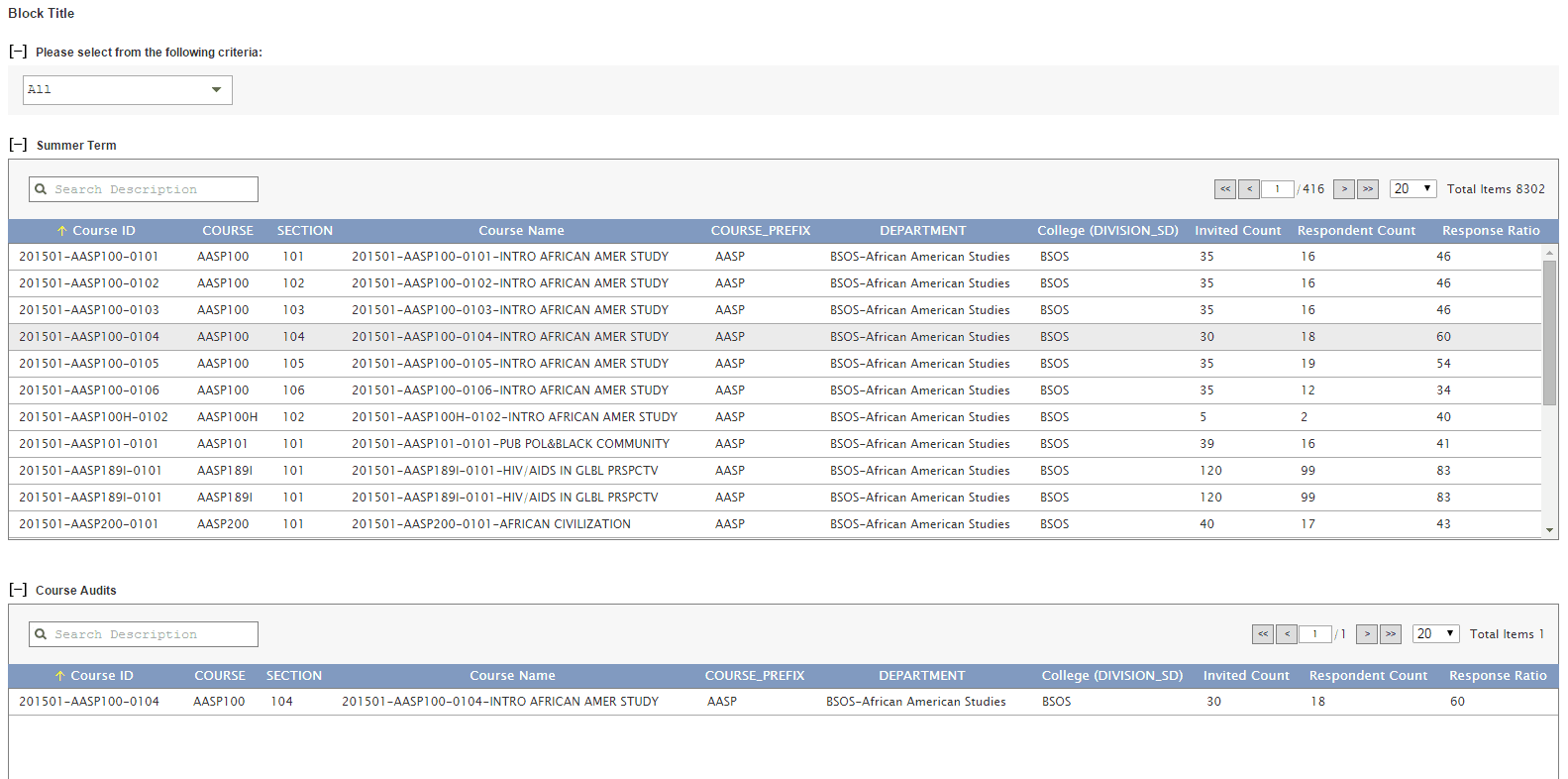
General Info
Block name and Block creator are required fields that cannot be modified once saved.

Blocks tags
Customize the captions that the end user will see by modifying the default text for the following fields outlined in yellow:
- Header – the first piece of text displayed in the block.
- Block title – the block's name and title to be displayed.
- Description – details pertaining to the block.
- Select subject – appears at the top of the subject drop-down list.
- Show more – appears at the bottom of the subject drop-down list and when selected, additional items are added to the drop-down list.
- Show results – Text of the link that shows the results.
- Total items – a label beside the total number of subjects that meet the current search criteria.
- Return value – a message that appears when no subjects meet the search criteria.
- Footer – a label that displays as the last piece of text in the block.
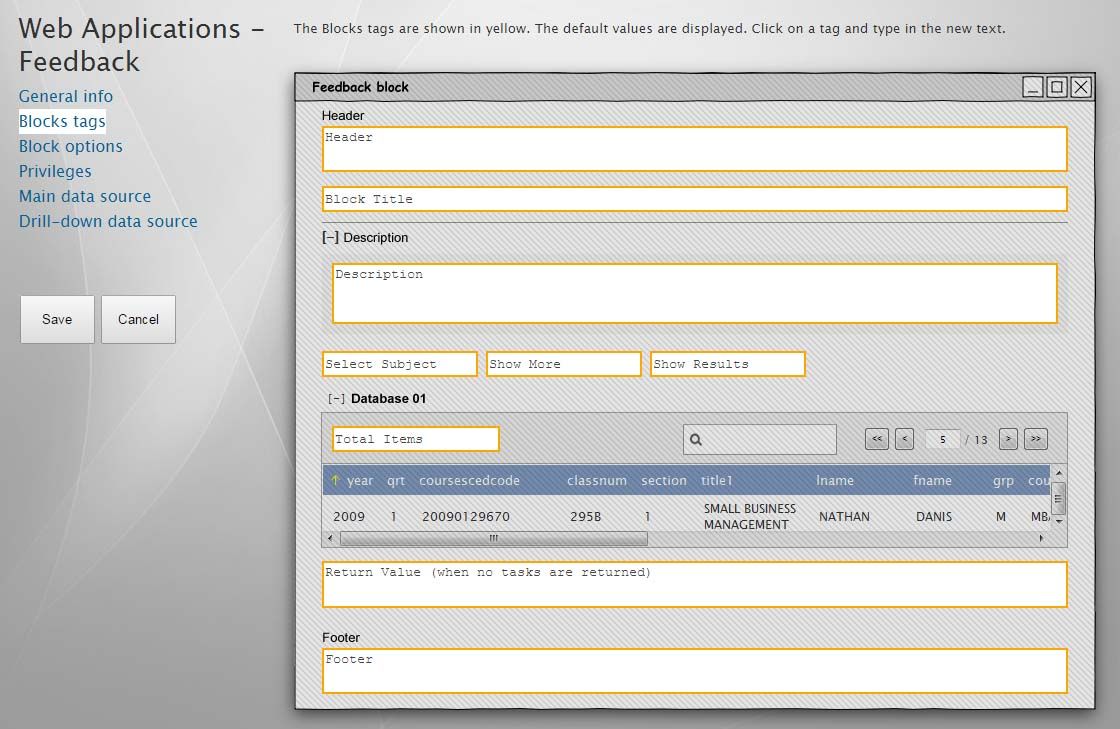
Block Options
Additional options related to the look and feel of a Feedback Block.
- Paging options – the default number of subjects listed in each page of the table.
- Number of items to show more – Select the number of items to fetch every time you click on the “Show More” item.
- Theme – The colors that the block will use.
- Show grid – Separate cells in the table with a thin border on all sides.
- Hide block title – When enabled, the block title is not displayed.
- Disable Column Sort - Prevent users from sorting and filtering columns.
- Allow criteria selection – Enable additional selection criteria:
- Show selection for all – The selection criteria will include an option for All that will retrieve all data.
- Direct fetch – Searching is done automatically as criteria is being selected so the search button is not shown.
- Block height (pixels) - Adjust the vertical size of the block (Blackboard Learn only).
- Prevent access API -
- Access denied message (Text only) -
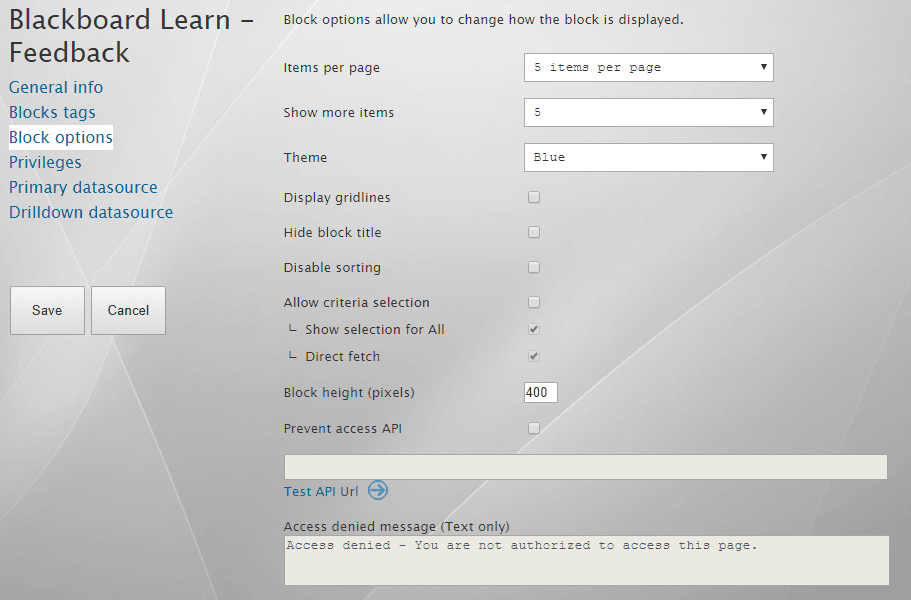
Privileges
Privileges actually refer to filters. Choose a project filter created in BPI - Filters, or select a privilege filter available in the Dynamic filters drop-down list.
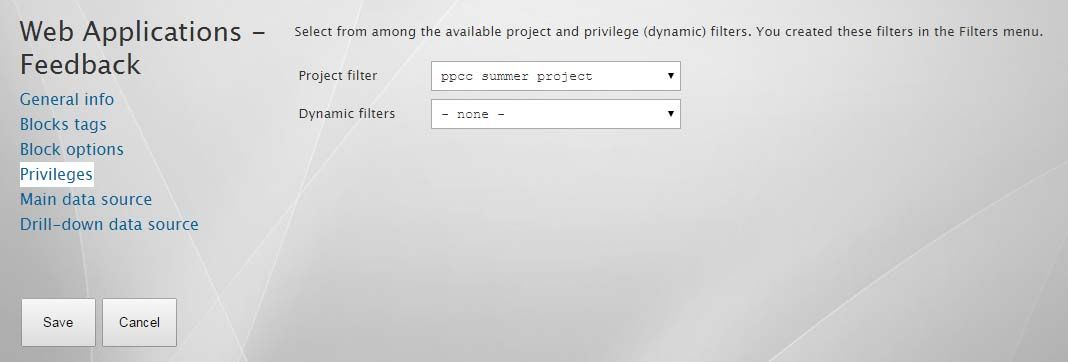
Main datasource
The field names in the main datasource will appear in the table.
Under Format, text columns will be indicated by “text,” numerical columns will be indicated by “number”
Configure the following fields:
- Main datasource – Select the main datasource for the Feedback Block
- Select filter – Using the drop-down list, select the filter to use on this datasource.
- Column selection – Select the fields in the datasource that you wish to display, to display all fields, click Select All.
- Icons – Click on the pencil in the Icons column to select an icon for the field. This icon will appear when certain conditions (that you select) are satisfied. Icons can only be used in numerical fields.
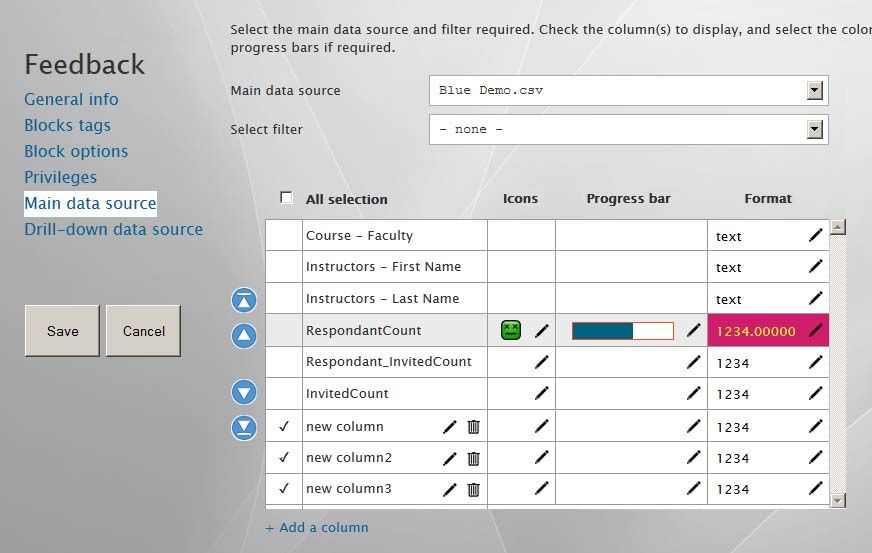
![]()
- Progress bar – Click on the pencil in the Progress bar column to select colors for the progress bar in the field. Progress bars can only be used in numerical fields.
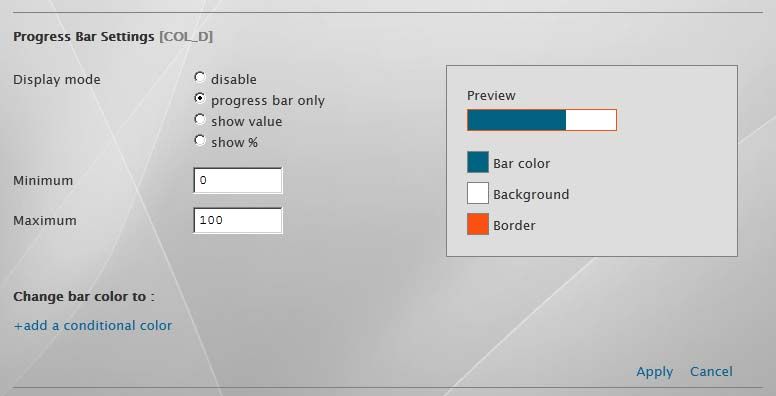
- Format – Click on the pencil in the Format column to select the text color and the background color for the field.
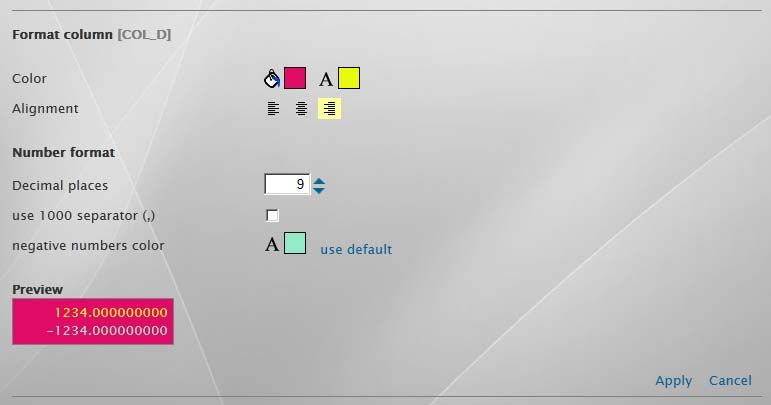
- Color – Click on the first colored square in the color row to select the background color for this field. Click on the second colored square in the color row to select the text color for this field.
- Add a column – Click Add a column to create an additional custom field. The custom field must be a mathematical formula and can involve one or more existing numerical fields.
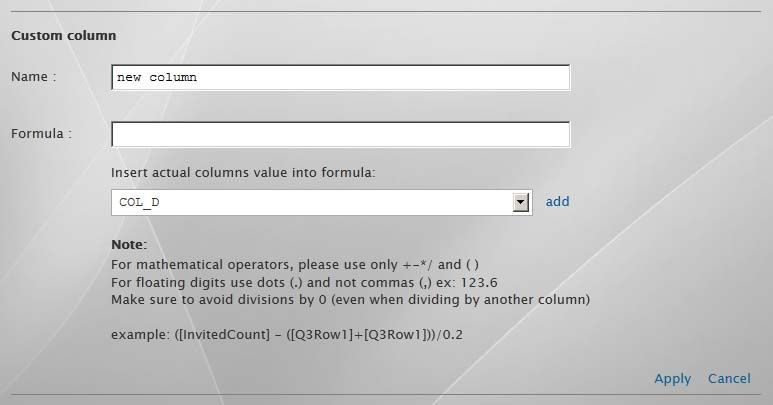
- Up and Down Arrows – move an individual field up or down the list by selecting it and clicking one of the scroll buttons.
Drill-Down datasource
The same options and configuration applies to the drill-down datasource as applies to the main datasource.
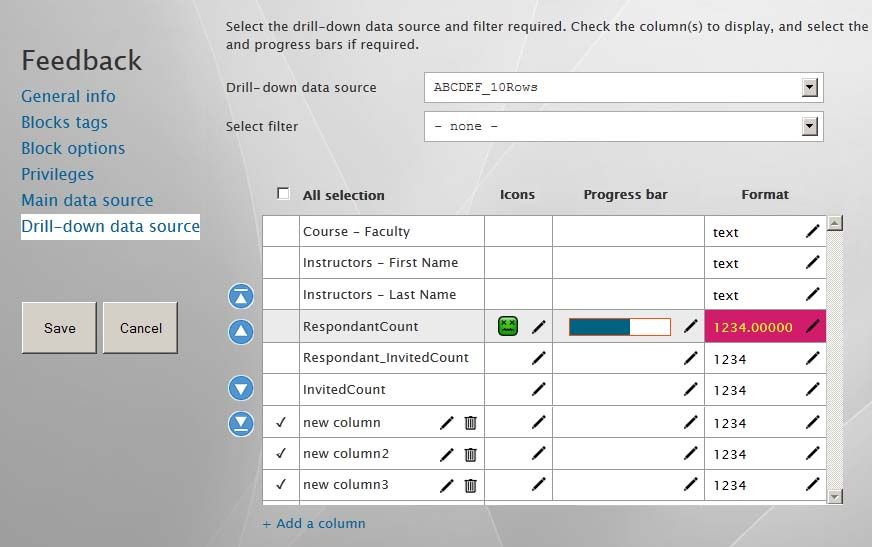
A drill-down datasource will only appear in the drop-down if the drill-down datasource contains a field title that is the same as the primary field of the main datasource. This drill-down field does not have to be a Primary key itself, it only needs to exist.